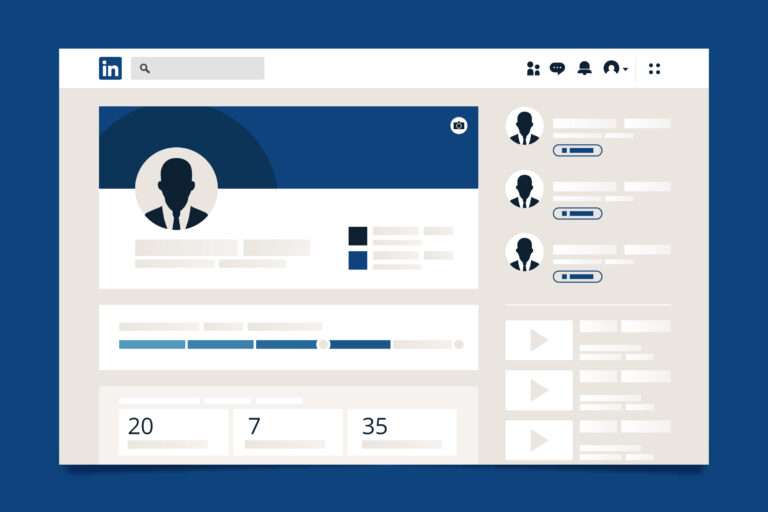5 Top Stress Busting Strategies for Engineers: Coping with Demands and Deadlines
Engineering is a demanding profession that requires technical excellence and project management skills. It’s not just about technical know-how, it’s about managing stress, staying motivated, and setting and achieving goals.
The demands of engineering can be daunting, and the pressure to meet tight deadlines and deliver high-quality work can wear down even the most experienced engineers.
In this blog, we’ll look at why stress is so important in engineering careers and what you can do to overcome it. We’ll also share strategies to help you succeed in the engineering field.
By implementing stress-busting strategies and goal-setting techniques, you’ll be able to take control of your engineering career—and achieve the success you want.
5 Top Stress Busting Strategies for Engineers
I- introduction
The Essential Guide to Managing Stress in Engineering Careers
The Ultimate Guide to Managing Stress and Achieving Success
Preview the key points of the blog post
Ii Understanding Stress in Engineering Careers
A Comprehensive Guide to Stress and Its Common Causes in Engineering Work Environments-
Unlocking the Potential of Stress to Improve Job Performance
When Is the Best Time to Recognize and Manage Stress in Order?
111- What Are the Best Practices for Managing Stress in Engineering Careers?
Identify Effective Stress-Busting Techniques for Engineers: What You Need to Know
The Benefits of Work-Life Balance: A Comprehensive Guide
Is Social Support and Networking the Key to Stress Management?
IV – The Ultimate Guide to Setting and Achieving Success in Engineering Careers
Discuss the importance of setting SMART goals (specific, measurable, achievable, relevant, and time-bound) for engineering careers
Identify Strategies for Staying Motivated and Focused on Your Goals
Why Is Celebrating Small Success and Learning from Failures Important?
V- Conclusion
Recap the key points of the blog post
How to manage Stress and Achieve Success in your Engineering Career: talk about the different ways people deal with stress, the things that cause stress and the things that you can do to fight it.
My Stress Management Strategy: share what has worked best for you and why.
I- The Essential Guide to Managing Stress in Engineering Careers-
Engineering is a demanding and high-pressure field that involves solving complex problems, working under tight deadlines, and delivering high-quality work. These demands can cause stress, which can negatively impact an engineer’s performance, health, and overall well-being. In fact, studies have shown that stress can lead to burnout, reduced productivity, and physical and mental health problems such as heart disease, depression, and anxiety.
If you’re an engineer, it’s critical that you learn how to manage stress. Why? Because stress can have a negative impact on your focus, creativity, and problem-solving abilities. Not to mention, it can also lead to burnout.
Fortunately, there are several effective stress management techniques for engineers, including time management, exercise, mindfulness, social support, and work-life balance. By implementing these techniques, you can improve your overall job satisfaction and work-life balance.
Additionally, setting and achieving goals can provide a sense of purpose and accomplishment, which can help reduce stress and improve job satisfaction.
In short, managing stress is essential for success in engineering careers. By prioritizing stress management and adopting effective strategies for achieving goals and managing stress, engineers can thrive in their careers and achieve the success they desire.
1.2 The Ultimate Guide to Managing Stress and Achieving Success
When engineers are under high levels of stress, it can negatively impact their work performance, creativity, and problem-solving abilities. This can lead to reduced productivity and quality of work. However, when engineers effectively manage their stress levels, they can improve their job performance, creativity, and decision-making abilities. Therefore, engineers need to learn how to effectively manage their stress to maintain a high level of productivity and quality of work.
Managing stress is crucial for success in any field, especially in engineering. When engineers can manage stress effectively, they can maintain healthy habits and relationships, which can lead to increased job satisfaction and overall well-being. This, in turn, can help engineers maintain their motivation and drive to succeed in their careers. By adopting effective stress management techniques, engineers can improve their work performance, job satisfaction, and overall well-being, all of which are key components of achieving success in this high-pressure field.
here are some stress-busting strategies that can help engineers cope with demands and deadlines:
- Prioritize and organize your workload: Make a list of your tasks and prioritize them based on urgency and importance. Break down larger projects into smaller, manageable tasks and use tools like calendars and to-do lists to keep yourself organized.
- Take breaks: It’s important to take breaks throughout the day to recharge and refocus. This can help you stay productive and avoid burnout. When you’re on a break, try to do something that will help you relax and clear your mind. Maybe try reading, listening to music, or spending time outside.
- Practice Relaxation techniques like meditation, deep breathing and yoga can help reduce stress and make it easier to manage your emotions. These practices can help you relax and focus on what’s important.
- Stay physically active- Being physically active is a great way to reduce stress and improve your overall health. You can do this by incorporating exercise into your daily routine, whether it’s going for a run, lifting weights, or taking a yoga class.
- Seek Support- Reaching out to people you trust for support is crucial when you’re feeling overwhelmed. Talking to someone can help you gain perspective and develop new strategies for coping with stress.
By implementing these stress-busting strategies, engineers can reduce their stress levels and maintain their productivity in the face of high demands and tight deadlines.
2.1 – A Comprehensive Guide to Stress and Its Common Causes in Engineering Work Environments-
Stress is the body’s response to pressure, and it can show up as feeling anxious, tense, or uncomfortable. In engineering, stress comes from lots of different sources, like:
- Workload: Engineers often have demanding workloads with tight deadlines, which can create a sense of pressure and urgency that can be stressful.
- Complex projects: Engineering projects can be complex and challenging, requiring engineers to juggle multiple tasks, solve problems, and make critical decisions. The complexity of these projects can lead to stress and burnout.
- Team dynamics: Engineering projects often require collaboration and teamwork, which can create stress if there are conflicts or communication breakdowns within the team.
- Technical difficulties: Technical difficulties or problems can arise during engineering projects, which can create stress as engineers work to troubleshoot and solve these issues.
- Career progression: Engineers may also experience stress related to their career progression, such as meeting performance metrics or advancing to higher positions within the company.
Engineering is a high-stress field. By understanding the root causes of stress, engineers can develop strategies to manage and reduce stress. This, in turn, will improve their overall well-being and productivity.
11.2 – Unlocking the Potential of Stress to Improve Job Performance
The impact of stress on job performance and overall well-being can be particularly significant for engineers. Engineers often work in high-pressure environments with demanding deadlines, complex projects, and a high degree of accountability. This can result in chronic stress that can negatively affect job performance and overall well-being.
One of the most significant impacts of stress on engineers is the potential for decreased job performance. When an engineer is experiencing high levels of stress, they may find it more challenging to focus, make decisions, and complete tasks efficiently. This can lead to missed deadlines, lower-quality work, and increased errors, which can have negative consequences for the organization as a whole.
Stress can really take a toll on an engineer’s well-being- both mentally and physically. When stressed, it’s not uncommon to experience things like fatigue, headaches, and muscle tension. Additionally, chronic stress can put someone at a greater risk for developing chronic illnesses like cardiovascular disease, diabetes, and depression. Not to mention, the mental health impacts of stress (anxiety and burnout) can spill over into different areas of an engineer’s life- like their personal life and relationships- and really affect the quality of their day-to-day.
Engineers are under a lot of pressure to perform well and maintain their mental health. To reduce the impact of stress on job performance, engineers can take steps to manage their stress levels. This may include techniques such as mindfulness, regular exercise, and taking breaks during the workday. Additionally, engineers can seek support from their colleagues, supervisors, or mental health professionals if they are experiencing high levels of stress.
Organizations can help minimize the impact of stress on engineers by implementing policies that prioritize employee well-being. These policies can include providing opportunities for professional development and growth, promoting a healthy work-life balance, and offering resources for stress management. By prioritising the well-being of engineers, organizations can benefit from increased productivity, decreased absenteeism, and a more engaged and satisfied workforce.
In conclusion, it’s evident that stress can have a detrimental effect on an engineer’s job performance and well-being. To mitigate these negative effects, it’s crucial for engineers and organizations to alike take proactive steps to manage stress levels. This can be done by promoting a healthy work-life balance and prioritising employee well-being. By taking these measures, not only will engineers improve their job performance, but also the quality of their life. Furthermore, organizations will also benefit from a more productive and engaged workforce.
II.3- When Is the Best Time to Recognize and Manage Stress in Order?
Stress is a common issue in the engineering profession, and it can have significant impacts on an engineer’s career trajectory. As engineers often work in high-pressure environments with demanding deadlines and complex projects, it is important to recognize and manage stress to achieve professional success.
Recognizing the signs of stress in the early stages is crucial. Physical symptoms such as fatigue, headaches, and muscle tension, and mental health symptoms such as anxiety and burnout are some of the common signs of stress in engineers. It is essential to address these symptoms promptly to avoid them worsening and impacting job performance.
Managing stress is crucial to achieving professional success. Engineers can manage stress by prioritizing their workload and taking regular breaks to avoid burnout. Additionally, mindfulness and relaxation techniques, such as deep breathing and meditation, can help alleviate stress levels. Regular exercise and maintaining a healthy diet can also help to reduce stress levels.
It is essential for engineers to prioritize their mental health and well-being to achieve professional success. Chronic stress can lead to physical health problems, mental health problems, and decreased job performance. By recognizing and managing stress levels, engineers can prevent burnout and stay motivated to achieve professional success.
Organizations can also play a very vital role in recognizing and managing stress in engineers. They can promote a healthy work-life balance, provide opportunities for professional development and growth, and offer resources for stress management. By prioritizing employee well-being, organizations can benefit from increased productivity, decreased absenteeism, and a more engaged and satisfied workforce.
In conclusion, it’s crucial to recognize and manage stress if you want to be successful as an engineer. You should prioritize your well-being by recognizing the signs of stress and taking steps to manage it effectively. Organizations can also support their employees by promoting a healthy work-life balance and offering resources for stress management. By taking these steps, you can achieve your professional goals and maintain a healthy work-life balance.
111- What Are the Best Practices for Managing Stress in Engineering Careers?
111.1 Identify Effective Stress-Busting Techniques for Engineers: What You Need to Know-
Engineering careers can be challenging and demanding, leading to high levels of stress. To manage stress effectively, engineers can utilize various stress-busting techniques, including time management, exercise, and mindfulness.
Time management is an important stress-busting technique for engineers. By creating a schedule and setting realistic goals, engineers can effectively manage their time and reduce stress levels. Time management can also help to prevent procrastination, which can lead to added stress and anxiety.
Exercise is like a stress-buster for engineers. By exercising regularly, they can reduce their stress levels and improve their overall well-being. This is because exercise releases endorphins reduce muscle tension, and improves sleep quality. If engineers incorporate exercise into their daily routine, such as taking a walk during lunch breaks or participating in a fitness class after work, they can help to reduce their stress levels and improve their mental and physical health.
Mindfulness is a stress-busting technique that can be utilized by engineers to manage stress. Mindfulness involves being present at the moment and focusing on thoughts and feelings without judgment. By practising mindfulness techniques such as deep breathing or meditation, engineers can reduce stress levels, improve mental clarity, and increase overall well-being.
To conclude, Stress management is crucial for engineers to maintain their well-being and achieve professional success. By utilizing stress-busting techniques such as time management, exercise, and mindfulness, engineers can effectively manage their stress levels and prevent burnout. It is essential for engineers to prioritize their mental and physical health to succeed in their careers and maintain a healthy work-life balance.
III. 2- The Benefits of Work-Life Balance: A Comprehensive Guide
Work-life balance is important for a lot of reasons. It can help you be more productive at work, and it can also have positive impacts on your physical and mental health. Here are some tips for achieving work-life balance:
- SET BOUNDARIES– One of the best ways to create a work-life balance is to establish clear boundaries between work and personal time. For example, you can set a specific time to start and finish work each day, and avoid checking work emails or taking calls during your personal time. By doing this, you can help ensure that you have time for both your work and your personal life.
- PRIORITIZE TIME MANAGEMENT-One of the most important things you can do for yourself is to manage your time effectively. This is especially true if you want to maintain a healthy work-life balance. By taking the time to prioritize tasks and create a schedule, you can ensure that you’re making the most of your time and preventing burnout.
- PRACTICE SELF CARE-It’s important to engage in self-care activities to reduce stress and improve your well-being. This includes things like exercise, meditation, and hobbies. It’s essential to make time for these activities to maintain a healthy balance between work and life.
- LEARN TO SAY “NO”: Learning to say “no” to additional work commitments or social activities can help to prevent overcommitment and reduce stress levels.
- FLEXIBLE APPROACH: Many workplaces offer flexibility in work schedules or remote work options. By utilizing these options, individuals can better manage work responsibilities while also having time for personal activities.
- COMMUNICATE WITH EMPLOYER-: Open communication with employers about workload and personal needs can help to establish reasonable expectations and prevent burnout. Employers may be willing to offer accommodations such as flexible work hours or additional support to help achieve work-life balance.
In conclusion-Learning how to achieve a work-life balance is key to being happy and satisfied with your career. You can create boundaries, manage your time more efficiently, engage in self-care, and communicate better with your employers to make sure you’re maintaining a healthy lifestyle. Prioritizing work-life balance is essential to having a fulfilling life.
III.3- Is Social Support and Networking the Key to Stress Management?
Having social support and networking connections is essential for managing stress effectively. Social support refers to the emotional, instrumental, or informational assistance provided by individuals within a person’s social network. Networking refers to the process of building relationships and connections with other individuals in one’s field or community.
Social support and networking can have a significant impact on managing stress in several ways:-
- Emotional Support: Emotional support from friends, family, or colleagues can help to reduce stress levels by providing a listening ear, empathy, and reassurance.
- Instrumental Support: Instrumental support involves tangible assistance, such as help with work-related tasks or daily responsibilities. Having access to instrumental support can reduce stress levels by decreasing the workload and allowing individuals to focus on other activities.
- Informational Support: Informational support involves providing advice, guidance, or resources. Having access to informational support can help individuals to manage stress by providing them with knowledge and skills to cope with challenging situations effectively.
- Networking: Building relationships and connections with other professionals or individuals in the community can provide opportunities for collaboration, support, and mentorship. Having a strong network can help individuals to manage stress by providing them with resources, knowledge, and guidance.
In conclusion, social support and networking are crucial factors in managing one’s stress effectively. They provide individuals with emotional, instrumental, and informational assistance, as well as opportunities for collaboration, support, and mentorship.
Building strong relationships and connections with others can help individuals to their stress levels and maintain their overall well-being. It is essential to prioritize social support and networking as part of a stress management plan.
IV – The Ultimate Guide to Setting and Achieving Success in Engineering Careers
iv-1-Discuss the importance of setting SMART goals (specific, measurable, achievable, relevant, and time-bound) for engineering careers-
Setting SMART goals is essential for success and stress management in engineering occupations because they can be demanding and stressful. SMART goals are more likely to be achieved and offer a clear path for one’s career since they are specific, measurable, achievable, relevant, and time-bound. Setting SMART goals is crucial for engineering careers for the following reasons:
Clarity of Purpose: Establishing explicit objectives enables engineers to clearly define their professional aspirations. SMART goals offer a structure that enables people to specify their goals and direct their efforts in that direction. This sense of purpose can lessen the tension and worry that uncertainty and ambiguity can generate.
Motivation: As engineers move closer to their goals, measurable goals can give them a sense of accomplishment. Those who are motivated to work harder may have more job satisfaction and less stress overall.
Accountability: Engineers who set attainable goals are better equipped to take ownership of their work and hold themselves accountable for success. When goals have a deadline, people are more likely to move forward with their goals in a planned manner, minimising procrastination and lowering stress levels brought on by missed deadlines.
Relevance: A person’s career should be relevant to their SMART goals, which also reflect their values and aspirations. People are more likely to stay motivated and focused on their goals when they set goals that are significant to them, which lowers stress brought on by boredom and a lack of interest in their work.
Flexibility: SMART goal-setting gives engineers a plan for responding to shifting conditions. People might modify their goals to stay focused and in line with their objectives when circumstances change. This adaptability might lessen the stress brought on by unforeseen circumstances or failures.
For success and stress management in engineering employment, defining SMART goals is crucial. SMART goals offer purpose clarity, inspiration, accountability, relevance, and flexibility, which can support people in maintaining their focus, engagement, and resilience in the face of difficulties. Engineers may achieve their aims and lower stress by defining SMART goals, which will result in a more rewarding and satisfying job.
Iv-2- Identify Strategies for Staying Motivated and Focused on Your Goals-
The key to success and stress management in engineering careers is figuring out how to keep yourself motivated and focused on your goals, and then putting those plans into action. Here are some methods that have proven effective in keeping engineers inspired and committed to their work:
Don’t let yourself get overwhelmed by your goal’s size; instead, break it down into a series of smaller, more manageable activities. Engineers’ motivation and concentration can be maintained by the completion of smaller, more manageable goals.
Make a timetable: Planning one’s day and designating time for various activities has been shown to increase productivity and decrease procrastination. The pressure of worrying about missing deadlines and being overwhelmed can be alleviated in this way.
Imagine yourself already reaching your goals and reaping the rewards of your hard work. Engineers’ ability to visualise success increases their chances of meeting their goals and keeps them motivated.
Get assistance: Achieving one’s objectives can be difficult; having a support system in place can help keep one motivated and focused on progress. Those who reach out to coworkers, mentors, or coaches for guidance often report feeling more encouraged and receiving more constructive criticism as a result.
Get a sense of progress and be motivated to keep going towards your goals by celebrating even the smallest of victories. This can help people keep a good outlook and prevent burnout.
Maintaining a sense of order and tracking one’s progress can be powerful tools for keeping oneself motivated and on task. To-do lists, project management software, and calendars are all useful tools for keeping on track and keeping stress at bay.
Taking care of oneself is crucial to maintaining drive and concentration. Maintaining the motivation and concentration required for success calls for a combination of regular exercise, a nutritious diet, and plenty of restful sleep.
In conclusion, success and stress management in engineering occupations depend on one’s ability to maintain motivation and focus on completing goals. Engineers may keep their motivation up and stay focused on their work if they divide their goals into smaller, more manageable chunks, create a schedule, visualise their success, get help when they need it, enjoy their successes along the way, stay organised, and take care of themselves. With these methods, one can improve their chances of staying the course and reaching their professional goals.
Iv-111- Why Is Celebrating Small Success and Learning from Failures Important? –
It’s important for growth, motivation, and stress management in engineering jobs to recognise small wins and learn from failures.Here are a few reasons why it’s important to enjoy small wins and learn from mistakes:
Celebrating little victories fosters a feeling of accomplishment and growth. This can help engineers remain motivated and focused on their goals by offering affirmation that they are on the right path. Individuals can maintain motivation and a sense of success along the journey by breaking down larger goals into smaller milestones and recognising progress at each stage.
Celebrating little achievements can enhance morale and create a sense of optimism. When people recognise their accomplishments, they gain confidence in their talents and are more inclined to maintain a positive outlook. This can aid in reducing stress and enhancing job satisfaction.
Failure is part of every job, and being able to learn from it is important for growth and success. Individuals can enhance their performance by learning from their mistakes and implementing necessary changes as a result of celebrating and acknowledging their small victories and failures. This helps increase resiliency and can minimise the stress produced by disappointment or self-doubt.
Creativity can grow in a place where people celebrate small wins and learn from failures. Individuals are more willing to take risks and try out new ideas if they acknowledge their achievements and failures. This can lead to new and better ways of doing things, products, or services, which can be good for both the person and the company.
Recognising little achievements can enhance motivation and contribute to a more positive work atmosphere. When individuals see that their contributions are respected and acknowledged, they are more likely to remain engaged and driven. This can aid in reducing stress and enhancing job satisfaction.
For growth, motivation, and stress management in engineering employment, it is crucial to recognise and learn from small victories and setbacks. Individuals may retain a positive attitude, learn from their experiences, and build a culture of creativity if they recognise and learn from their failures. This can reduce stress, boost job satisfaction, and lead to a career that is more meaningful and pleasurable.
V- Conclusion –
1-Recap the key points of the blog post-
The blog post “Stress-Busting Techniques for Engineers: Dealing with Demands and Deadlines” has the following main points:
Engineers should be aware of their stress levels and take action to reduce them by using relaxation techniques, obtaining enough sleep, and engaging in regular exercise.
Establish SMART objectives: To help relieve stress brought on by feeling overloaded or lost in the process, engineers should define specified, measurable, achievable, relevant, and time-bound objectives.
Establish priorities: To lessen the stress brought on by feeling overburdened, engineers should establish their priorities and concentrate on high-priority activities first.
Time management: Engineers should make calendars, rank jobs, and stay away from distractions to avoid the stress that comes from missing deadlines or feeling too busy.
Get support: To lessen the stress brought on by feeling alone or overburdened, engineers should seek support from peers, mentors, or coaches.
Engineers should appreciate modest victories and take lessons from setbacks to lessen the stress brought on by feelings of disappointment or self-doubt.
Generally, engineers may manage the demands and deadlines of their employment and maintain a healthy work-life balance by putting these stress-relieving techniques into practice.
V-2-How to manage Stress and Achieve Success in your Engineering Career: talk about the different ways people deal with stress, the things that cause stress and the things that you can do to fight it.
Urge readers to make efforts to reduce stress and succeed in their engineering careers.
Finally, stress management is critical for success in engineering careers. Readers can take steps to manage their stress and achieve their job goals by applying the stress-busting tactics provided in this blog. Here are some more ideas for readers to think about:
Make self-care a priority: Make time for activities that promote self-care, such as exercise, meditation, and hobbies. Making self-care a priority can help reduce stress and improve overall well-being.
Take a break: Take frequent pauses during the workday to rest and refuel. This can help increase productivity while easing stress brought on by feeling overworked.
Exercise mindfulness: Deep breathing, imagery, and progressive muscular relaxation are examples of mindfulness methods. These approaches can help you reduce stress and focus better.
Talk to your coworkers and management in a clear way. This is important for setting clear goals and avoiding misunderstandings. Good communication can help minimise stress induced by a sense of isolation or ambiguity about job tasks.
Get expert help: If stress becomes unbearable, consult a mental health professional. They can provide tools and strategies for stress management and overall mental health improvement.
It is important to get people to take steps to deal with their stress and do well in their engineering jobs. With the right tools and strategies, readers can reduce stress, boost productivity, and keep a good balance between work and life. Readers can achieve success in their engineering careers and lead fulfilling and enjoyable lives by emphasising self-care, taking pauses, practising mindfulness, communicating effectively, and getting professional help as needed.
My Personal Stress Management Techniques That Have Worked for Me-
As an engineer, I’ve tried a variety of stress-management approaches throughout the years. Here are some of the methods that have proven to be most effective for me:
Exercise: I feel that physical activity is a fantastic stress reliever. Running or going to the gym helps me clear my mind and release tension in my body. I’ve been taking 15-20 minute walks in the garden for many years.
Time management involves making an intentional effort to plan my day and prioritise my tasks. This allows me to feel more in control of my task, which lowers my stress levels. TDL (To Do List) has been utilised for decades.
Meditation on “mindfulness” has helped me become more aware of my thoughts and feelings.When I’m feeling overwhelmed, focusing on my breath and being present in the moment helps me calm down and get perspective. Deep inhalation…
Social support: I make an effort to maintain regular contact with family, friends, and colleagues. Talking to others about my worries makes me feel less alone and gives me a new perspective on my problems.
Interests: Reading, for example, helps me relax and divert my attention away from work-related pressures. I regulate my thinking through reading books. When I’m stuck for some reason, I look for solutions in books. I recommend two books to all of my recruits as part of the induction process. (i) Why some positive thinkers get powerful results ? By Norman V. Peale and (ii) The Magic of Thinking Big by David Schwartz- Both these book are transforming agents.
These are just a few of the tactics that have proven effective for me. Of course, everyone’s stress experience is unique, and what works for me may not work for you. But I feel that sharing what has worked for me can motivate others to experiment with different strategies and create their own stress management toolkit.
Finally, as an engineer, my go-to stress management tactics have been exercise, time management, mindfulness, social support, and hobbies. I encourage you to experiment with different methods to see what works best for you. Remember that stress management is a journey, not a destination, so be patient with yourself and continue to prioritise your mental health.
All The Best Wishes.







